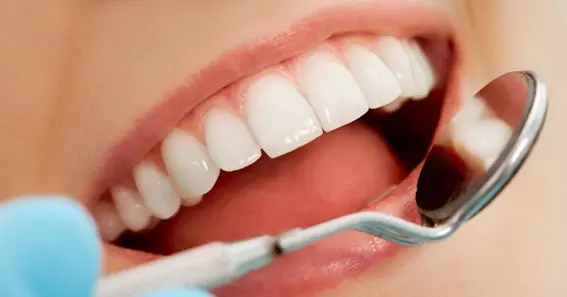Our dental health depends on the things we eat as every food reacts differently with the teeth and mouth bacteria. Knowingly and unknowingly, we make many bad choices due to our hunger and craving, which causes cavities and other dental problems with the passing of time. All natural toothpaste in the market might not be effective if you are careless in eating more sugary and junk foods. In this blog, you will read about how your diet impacts your overall dental health.
The Diet-Oral Health Link
The saying “you are what you eat” holds particularly true for our oral health. The foods you eat have a direct impact on the teeth and gums. Here are some key connections between diet and oral well-being:
1. Sugar and Tooth Decay:
- Consuming excessive sugar feeds harmful bacteria in the mouth, leading to acid production that erodes tooth enamel, causing cavities.
2. Acidic Foods and Enamel Erosion:
- Acidic foods and beverages, such as citrus fruits and sodas, can weaken tooth enamel over time, making teeth more susceptible to damage.
3. Nutrient-Rich Diets and Gum Health:
- Diets rich in vitamins and minerals, particularly calcium and vitamin D, contribute to strong teeth and healthy gums.
4. Hydration and Saliva Production:
- Staying hydrated is crucial for saliva production because it neutralizes acids, cleanse the mouth, and remineralizes tooth enamel.
5. Crunchy Fruits and Vegetables for Natural Cleaning:
- Fibrous fruits and vegetables, like apples and carrots, act as natural toothbrushes, stimulating saliva flow and helping clean the teeth.
Also Read N: Complete Tree Services in Texas: Enhancing Landscapes and Ensuring Safety
Natural Toothpaste: A Holistic Companion
While brushing your teeth is a daily habit, the type of toothpaste you choose can significantly impact your overall well-being. Natural toothpaste, with its focus on pure, plant-based ingredients, complements a holistic approach to oral care in several ways:
1. Avoiding Harmful Chemicals:
- Conventional toothpaste often contains synthetic additives, preservatives, and fluoride. Natural toothpaste contains minimal harmful chemicals, promoting a cleaner and toxin-free oral care routine.
2. Harnessing Nature’s Antimicrobials:
- Many natural toothpaste formulations incorporate antimicrobial ingredients like tea tree oil or neem oil, helping combat harmful bacteria in the mouth without compromising on health.
3. Gentle on Enamel:
- Natural toothpaste formulations are generally gentler on tooth enamel, avoiding abrasive agents that could contribute to enamel erosion over time.
4. Promoting Gum Health:
- Some natural toothpaste varieties contain soothing herbs like aloe vera or chamomile, promoting gum health and reducing inflammation.
5. Reducing Sensitivity Naturally:
- Ingredients like baking soda in natural toothpaste can help reduce tooth sensitivity without relying on chemical desensitizers.
6. Environmentally Friendly:
- Many natural toothpaste brands prioritize eco-friendly packaging and sustainable sourcing, aligning with a holistic approach to well-being that extends beyond personal health.
7. Fluoride-Free Options:
- While fluoride is a contentious topic, some individuals prefer fluoride-free toothpaste. Natural toothpaste options often cater to this preference without compromising on effective oral care.
Also Read P: The Art of Luxury Living: Embracing Modern Home Improvement Trends In Your Estate
Winding-up
Hope you might have understood the connection between diet and oral health. A natural toothpaste might offer you a clean and fresh mouth, but it’s all waste if you don’t take care of yourself. Instead, include the foods that are good for the body as well as dental gums.






